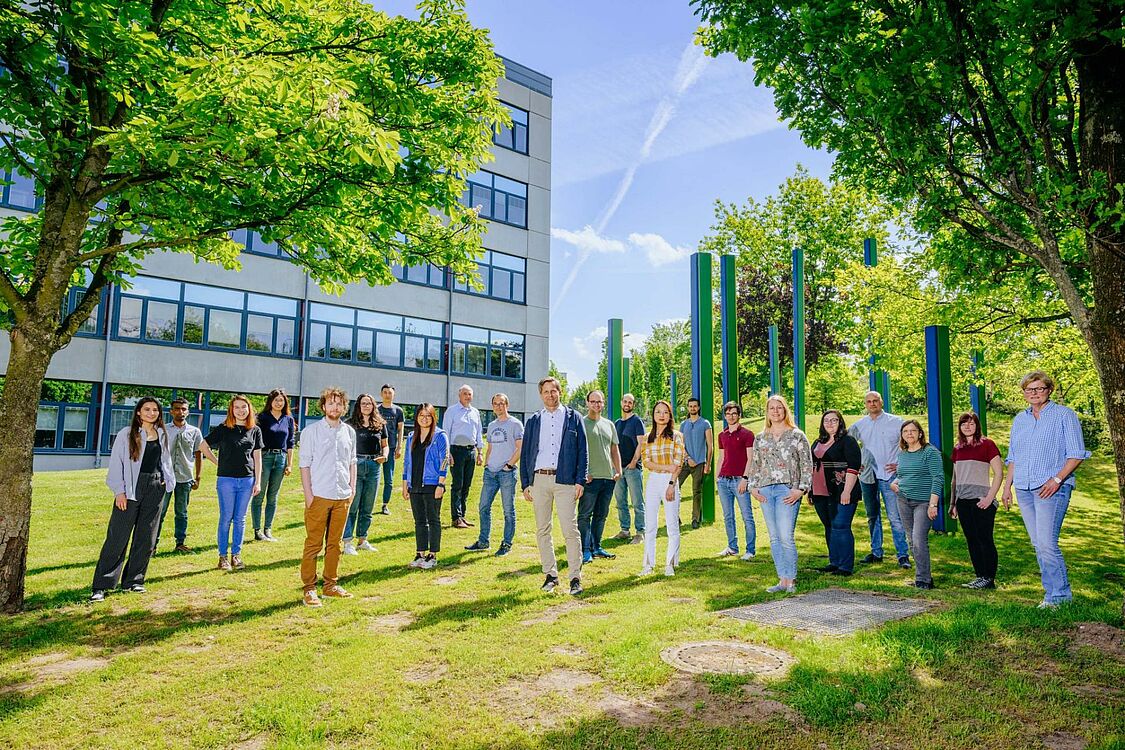TMC - Technical and macromolecular chemistry

The Chair for technical and macromolecular Chemistry (TMC) focuses on the following research areas: Theoretical/experimental understanding of molecular adhesion, interfacial chemistry/interfacial electrochemistry, nanostructured surfaces/interfaces, functionality and stability of polymer/oxide/metal interfaces and self-healing processes. The interdisciplinary work aims to link physical-chemical approaches in the field of surface and interface analysis, with new methods for the synthesis of polymers and thin films as well as composites. We take into account modern areas of material science such as surface modification of lightweight materials or the development of novel layer systems with application oriented functional properties.
Read more on the website of the specialist group.
Methodical competence
Scanning probe microscopy based methods
- Atomic force microscopy (AFM- UHV-AFM)
- Single molecule desorption spectroscopy (SDS)
- Chemical force microscopy (CFM)
- Scanning Kelvin Probe (SKP)
- Scanning Kelvin Probe Force Microscopy (SKPFM)
Electrochemical methods
- Electrochemical Impedance Spectroscopy (EIS)
- Scanning Capillary Cell (SCC)
- Mott-Schottky Analysis
Spectroscopic methods
- Infrared Reflection Absorption Spectroscopy (IRRAS)
- Polarisation Modulated Infra Red Reflection Absorption Spectroscopy (PM-IRRAS)
- Attenuated Total Reflection Spectroscopy (ATR)
- Diffuse Reflectance Fourier Transform Infra Red Spectroscopy (DRIFT)
- Confocal Imaging Raman Spectroscopy
- X-Ray Photoelectron Spectroscopy (XPS)
- Scanning Auger Microscopy (SAM)
Film deposition methods
- Physical vapour Deposition (PVD)
- Layer-by-layer technique (LBL)
- Plasma enhanced chemical vapour deposition (PECVD)
- Self-Assembly from solutions
- Micropatterning
- Conversion Chemistry
- Wet chemical nanocrystalline oxide growth
Theoretical methods
- Density Functional Theory (SIESTA, VASP)
Other methods
- Contact Angle
- Peel Test
Topics
Adhesion: Science and Engineering
- Fundamental understanding of adsorption/desorption and adhesion/adhesion processes on metal/metal oxide surfaces.
- Bridge between mechanistic understanding of surface/interface processes at the molecular level and at the level of observed macroscale phenomena
- Combining studies of model single crystal surfaces, polycrystalline thin films and complex engineering substrates
Applied surface and interface analysis and simulation
- Investigation of surface and interface properties at varying atmospheric conditions and high resolution
- Investigation of structural and chemical changes of interfaces in the presence of water films or corrosive electrolytes
- Density functional theory calculations to describe the processes at the molecular level
Nanostructured thin films
- Synthesis of thin oxide, organic films and thin films of nanocomposites on engineering metals and polymeric substrates as well as their targeted surface modification
- Comprehensive material selection including oxide nanocrystalline films, layered silicate/graphene polymer nanocomposites, self-assembled monolayers (SAMs) and plasma polymer films
- Modification of the electrical, chemical and mechanical properties of such films by annealing, plasma treatment and adsorption of SAMs.

